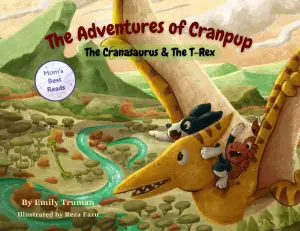As a passionate reader with a keen interest in finance and the intricacies of economic disasters, I was drawn to Michael Lewis’s The Big Short. Having heard so much about the financial crisis and its aftermath, I felt compelled to explore this story from a narrative perspective rather than a dry historical account. Lewis is known for his engaging writing style, and I was excited to delve into the characters and events that led to one of the most significant financial calamities in recent history.
The book certainly lived up to its reputation as a #1 New York Times bestseller. Lewis’s ability to weave complex financial concepts into a compelling narrative is a testament to his skill as a storyteller. He introduces a cast of unlikely heroes, such as Michael Burry and Steve Eisman, painting vivid portraits of their personalities and motivations while exploring the financial world—an often daunting subject matter. As AdamSmythe noted, the writing is straightforward and conversational, making complex themes accessible to readers without a finance background.
The humor in Lewis’s writing is also noteworthy; it lightens the gravity of the material while maintaining underlying indignation about the systemic failures that led to the crisis. For instance, Lewis often uses pithy metaphors to illustrate convoluted financial instruments and practices, helping clarify dense jargon. This aspect of the book resonated with me; it can be quite difficult to explain intricate financial transactions, but Lewis manages to make them digestible and even entertaining.
However, like any work, The Big Short has its drawbacks. While many found the pacing fast and thrilling, others criticized it as occasionally disjointed. There are moments where the narrative jumps between characters and events, which can make it challenging to follow. For someone deeply interested in the financial movements, the fragmented pacing occasionally detracted from the coherence of the overarching story.
Additionally, some readers expressed concerns about the portrayal of corruption within the financial systems, suggesting a biased or simplistic view. I found bits of this critique valid; while Lewis does tackle the moral failings of many individuals involved, the book sometimes lacks a more nuanced exploration of broader economic systems. Bill Dahl pointed out the necessity of listening to dissenting voices, which is an important aspect that Lewis certainly touches upon, but I was left wanting a deeper analysis of why these failures persist beyond individual greed or arrogance.
Lewis’s insights into human behavior in financial capitalism are precisely what makes The Big Short such a potent read. He raises pivotal questions about foresight within the financial system and highlights the consequences of widespread ignorance and belief in unsustainable practices. Reading how a small group saw the impending crash while the vast majority remained oblivious made me reflect on our current economic landscape and whether lessons have truly been learned.
Overall, I would rate The Big Short a solid 4.5 stars. Michael Lewis has crafted a narrative that is as informative as it is engaging, effectively combining humor and serious commentary on societal ethics regarding finance. While I felt the pacing faltered at times and the complexity of capitalist corruption was not fully realized, these issues do not overshadow the book’s strengths.
In conclusion, I highly recommend The Big Short to anyone interested in understanding the financial crisis in a captivating and comprehensible manner. Whether you’re well-versed in finance or a layperson curious about the intricate workings of economic systems, this book is essential reading. It not only entertains but challenges us to consider the accountability of the few who truly saw the storm brewing. Lewis’s narrative is worth your time, and it might even leave you pondering the depths of our financial systems long after you turn the last page.








